How a Target Tradition has become part of our fitness journey
If you see us at Target on a Sunday, you might spot us doing something that looks a little crazy: walking the fitness aisle with dumbbells. It’s a little tradition we’ve been doing the past few months as we’ve both been on a health journey in 2024–and we’ve both lost enough weight to wonder how we ever managed to carry the extra weight we did before this year.
Let me be clear: It’s never been about being a certain number or aesthetic. When we started 2024, we both decided that after years of not taking care of ourselves and of, quite frankly, being through years of hell with job losses and the loss of our mastiff and all sorts of other things, this would be our year. That at 36, we’d get it together. We’d take care of ourselves, and we’d start feeling better. We’d prioritize our health, together. Less than six months into the year, we’ve both accomplished so much. We’re down enough weight to carry around dumbbells in Target and really understand how far we’ve come together. Losing the weight is a product of quite a few things. We’ve been using Lose It (it’s a free app! and I'm not sponsored by them...just love it!) to understand what we actually eat in a day and our nutrition. I started doing ballet, which has completely transformed my body in all the best ways. And most of all, we’ve been committed to this journey together, which means we pick each other up when one of us is struggling. I think, too, this year is a symbol of how much we’ve both changed. When Chad lost his job in 2019, the bottom really did fall out for us financially, emotionally, and, as a result, physically. We went through years of crazy work schedules, of loss after our mastiff died, of just sorting out who we were. And in 2024, I think we’ve both settled into a sense of where we belong, of who we are, and where we’re going. That definitely has made our health journey even more meaningful. Getting healthy really is a lifestyle. I used to cringe when some fitness influencer would say that. But I understand now. It’s not about cutting calories or exercise alone.It’s not about starving yourself for a couple weeks. It’s about understanding that you deserve to feel your best, every single day. It’s about giving yourself grace when you mess up, and it’s about getting back up again and sticking with it. It’s about eating sometimes boring meals over and over and going for a walk when you’re tired. It’s about figuring out what foods make you feel the best. It’s about changing your relationship, not with food, but with yourself. It’s about fighting to feel like the best version of yourself. It would be easy to be mad at those younger versions of ourselves who let things slide, who didn’t take care of themselves. Who counted eating dozens of chicken wings as a meal. Who drank iced coffees like they were water. Who napped instead of ever exercising. Who let their bodies ache instead of getting in shape. Who ignored the signs when their jeans were too tight. Who, in some ways, stopped trying. It would be easy to be embarrassed of how little we took care of ourselves or how much our weight went up. But honestly, I’m not. Because looking back, I think like so many of us, we were doing the best we could. And now, we’re doing the same…we’re doing the best we can. And we’re so proud that our efforts are working. It isn’t about the number. It never was, truly. It’s about feeling good in your skin, about knowing you care enough about yourself to live healthy. It isn’t about being perfect, either, but it’s about being perfectly committed to doing your best. It’s about taking one small step at a time, making little changes, and tweaking your life until it really does become a better lifestyle. So, on Sundays, we carry around weights in Target like crazy people…but we carry around weights to remember how far we’ve come. Together. We carry around pride in the fact it’s never too late to become the person you were meant to be. We carry around weights and understand that together, we are unstoppable. And that’s something worth looking arguably a little crazy for. L.A. Detwiler is a USA Today Bestselling author of The Widow Next Door and The Diary of a Serial Killer's Daughter. Learn more about her and her fitness journey on Instagram.
0 Comments
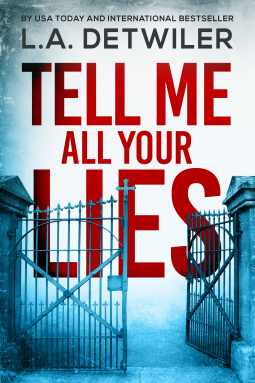 My next thriller, Tell Me All Your Lies, releases June 4! You can get your hands on a sample NOW by clicking here. Find out why some family secrets are just too bloody... Unlike most children, you see, my first memories are not of ice cream or a childhood book or petting a stray cat in the street–although she loved to pretend they were. My first memories are of the blackish red splatters marring my mother’s sunshine yellow dress, her bright red lips seeming to match perfectly. My memories are of the odd, metallic smell that filled the apartment only to be stripped away by the stinging chemicals. My first memories in that Parisian apartment are about how sometimes a person enters through the front door and leaves in pieces. These are my memories because when I was three, my mother slaughtered the first man as I sat outside the room drawing. But all I saw, all I knew, was the aftermath. The red. Red splatters, red dots, red all over her just like the crayon in the box she’d given me. But all I could think about was how beautiful the red looked. I wondered what it tasted like. I imagined the strawberry jam my mother sometimes ordered on her croissant, the sweet, savory taste dancing on my tongue as I closed my eyes. I thought that was what the red tasted like. When I killed the second one, I remember flicking out my tongue to see if there was a speck of red to taste. It didn’t taste like the strawberry jam of my childhood, but it was still satisfying, beautiful. Delicious. Killing has become delicious. I understand my mother so much better now. Tell Me All Your Lies by L.A. Detwiler
Everyone has a dark side. Everyone has potential to do something monstrous, and that’s what’s most frightening about the thriller and horror genre.
We like to tell ourselves the criminals in our tales, nonfiction or fiction, are far from who we are. But the one thing I’ve always found terrifying is that really, we’re all a few bad events, a few bad choices, away from being a monster ourselves. Because every human has the capability to do evil. That’s always been the theme of my novels, and Tell Me All Your Lies, my next book coming out in June, is no different. This is a story about a boy named Elliott Clairmont who grows up in Paris with his mother–and learns a dark way of life from her. When his mother’s criminal life, though, catches up with her, Elliott will be sent on a quest to find the truth about his roots, who he is, and what darkness lurks within him. There are several points in this dark tale that offer the potential for Elliott to turn things around. This is a book about nature versus nurture, about how our families impact our paths, and about how dark secrets can change everything in our lives. It’s a twisted family saga that will take you down both dark paths and paths of hope. And most of all, it will remind you how eerily close we all are to disaster. This is my favorite book I’ve written because it’s a complex, twisted tale that mixes the thriller genre with the interpretive value of literary fiction. If you loved my Serial Killer’s Daughter book, this one is like an even more grown up version of it. Follow the Clairmonts as the family business passes down…and truths come to light. You can pre-order now from your favorite bookstore. If you send me proof of purchase to [email protected], I’ll send you a free VIP Reader’s Pre-Order Gift, which includes the first 60 pages so you can get reading now! East of Eden meets Stephen King in this dark serial killer saga.
I was in high school when I read East of Eden, the family saga of deceit, murders, and pain. And ever since then, Cathy’s character has stuck with me for her villainy. When I got the idea to write Tell me All Your Lies, I kept thinking about Cathy and about the family saga of pain. I wanted to write a serial killer thriller that had that family saga feel. I wanted to follow a messed up family through the generations and track how a killer is not only born but made. Lucy Clairmont is sexy, seductive–and a murderer. She teaches her son, Elliott, the ways of the world through her eyes. As he tries to sort out his own path after her murder, though, will he be able to resist the family business–or are some pulls too difficult to fight? This book spans decades. It takes you from Paris to Chicago to New York. Most of all, it takes you on a journey of how family legacies impact our stories for better or worse. If you like a dark literary journey with lies, murder, and deep twists, this thriller is for you. Get a free sample here. I tugged my black shirt down–black is slimming, those women’s magazines always told me in my teens–and folded into myself, willing my body to be smaller. Staring in the mirrors as my soft pink shoes tripped their way across the glossy floor in stilted trepidation, I caught sight of every lump, bump, every angle that made me sneer in disgust at my swollen body. I tried to dance on.
But now, months later and more plies than I thought my legs could take, I look in the mirror differently. Fondness, inspiration, admiration usurped disgust along the way, imperceptibly replaced by a newfound appreciation. My feet glide across the floor, still hampered by ineptness at times, but in a fearless way despite it all. I peruse the mirrors and spot strength where I once saw flaws. I see beauty where I once saw repulsion. It isn’t about slimmer hips or a flatter stomach. It isn’t about numbers on a scale or perfection or a flawless body. I’ve come to learn that it’s about a newfound context of what my body is capable of. It’s about looking in the mirror and seeing capability, not defect. It’s a posture of pride in how far I’ve come, in building something from a foundation of literally nothing. Most of all, it’s about rising above the fear of imperfection to embrace growth. I can do things that feel terrifying, and in that, I like the person who looks back at me from the mirror. Finally. Perhaps for the first time. I didn’t just learn French and posture. I didn’t just learn how to find a properly fitting shoe or to spot or how to build muscle needed for leaps (someday). At 36, ballet class taught me something I didn’t realize was missing–a confidence in my body and mind. A knowing I’m more than capable of even the most difficult things. And above that, a love for the beautiful feats my body can reach, imperfect or not. Ballet taught me to quiet my mind and heart, to just be. To revere the power of my body, my spirit and the passion that moves us all if we quiet the inner nag, social media, and the past. Ballet, in a sense, taught me to breathe into who I am and what I’m capable of. It taught me to look in the mirror and see beauty and grace where I once thought there was none. It taught me to grow up. Most of all, it taught me I can be whoever I want to be when I look in the mirror. I let my black shirt ride up my back and don’t tug it down. I’m too busy focusing on the leaps I’m making and the woman I see smiling back at me with peace. Not every single day is going to be magic or feel like magic.
There will be days where you feel isolated, alone, and like no one understands who you are. There will be days when you try to chase that life you want only to trip on your own shoelaces. Sometimes, you’ll get up only to get shoved back down. Some days, you’ll feel like there’s only darkness, even when the sun is shining. Some days, you’ll feel like it would be easier to just sit back down, watch Netflix all day, and say to hell with the dream. Some days, you’ll wonder if one day, you’re going to wake up and be ninety–and still not achieved the dream. Some days, you’ll wonder if it was ever even meant to be yours. But Darling, those are the days that count. The gloomy days where you just want to cry, to sleep, to quit. Those are the days that separate you from the rest. Because you’re not going to sit back down or go to sleep or say “to hell with it.” On those days, you’re going to wipe away the mascara. You’re going to shove the icky feelings aside. You’re going to put on the music that pumps you up. You’re going to think about how far you’ve already come. You’re going to look in the mirror and see the strength that’s always been there, that is still there. You’re going to remember you’re a bad ass. You’re going to remember who you are and what you want. And then you’re going to keep going. You’re going to show up, even when it’s hard. You’re going to put on the red lipstick and show the world you won’t be discounted or counted out. You’re going to go again. You’re going to tell yourself you’re strong, you’re capable, and you’re more than okay. You’re going to repeat it over and over until you believe it. Because these days, the hard days, are the ones that count the most. Do something that scares the shit out of you.
That’s been the mantra I’ve had for the past couple of years–even though I’m an anxiety-riddled, paranoid, afraid-of–everything person. I got my first tattoo and then my second, both after an entire day of tears and fears. During the second one, which was bigger, my Fitbit said I did two hours of intense working out–just because my heart was racing so fast. I got on a horse even though once we got there, I realized I had underestimated how big the horse was going to be and was terrified. I took Edmund to his first dog show even though I was convinced it was going to end in disastrous, embarrassing moments of my dress flying up as I went flying helter-skelter across the room to chase him. But I survived all of those things that made my heart race. And even though there have been a lot of ugly tears through the scary moments and minutes when I thought I really couldn’t, I’ve come to understand this: When you do something that scares you and realize you CAN do frightening things, your confidence goes up. A lot. And that is something that never reverts back. So, this year, I’ve decided to do something out of the box again. In fact, it’s something I’m starting on Tuesday. Something I’m excited about because I’ve always wished I could…something I’m afraid to even admit, in some sense, though. I’m taking my very first ballet class. At the age of 36. Now, let me clarify for those of you who don’t know me. I’m NOT a dancer. Not at all. I’m a can’t touch my toes, got a B in gym class and cried, last picked on the team kind of person. I played soccer for a few years in elementary school and scored two goals–for the other team during the championship. I’m klutzy. I’m not athletic. I’m not coordinated. Ballet is probably the LAST thing I should be trying. I’m terrified, to be frank with you. I’m terrified I’m going to walk in with my carefully selected all black outfit (to blend in) and my potentially ill-fitting ballet shoes (I have no idea how they’re supposed to fit?) and see a room full of tutus and dancer bodies. I’m terrified that even though it’s a beginner’s class for adults, they really mean “You have some expertise in dance and can stretch your leg Rockette high” kind of beginner, and I’m going to be panting in the corner trying to figure out what the terms mean. I’m terrified I’m going to trip and fall or literally break my leg. I’m terrified the instructor is going to kindly and patiently ask me to leave because it’s not for people like me. I’m terrified of about 2,000 scenarios I’ve made up in my head. And in truth, I thought about waiting to post about this…because then I’d still have an out. If I go on Tuesday and it’s a disaster to the point that I ask where the bathroom is and then never go back (forever abandoning my water bottle, which is why I’m picking one I won’t miss), I wouldn’t have to admit the failure. I could just pretend it didn’t happen, and no one would be the wiser to the fact that me, non-agile, non-dancer me, even considered the idea she could take ballet. But then I thought about everything that I talk about here. About chasing your passions and joy unapologetically. About trying new things and taking risks and just LIVING your life. And I realized I needed to talk about this thing I’m doing, even if it’s a failure. Because even if the worst thing happens on Tuesday, even if my leggings split or I fall or the rest of the class is doing the Nutcracker Ballet while I’m in the back corner dying from a few stretches….even if all that happens, at least I can say I did the thing. I can say I went for it, for the thing that scared me. I can say that I took something I’ve always thought was interesting, something I’ve always wanted to do…and I did it. Even if it was just one time. I’m pretty sure I won’t die on Tuesday, even from embarrassment. I’m pretty sure that the class for adults is going to move slow enough that I can at least do something. I’m pretty sure there aren’t going to be members from the Rockettes taking the class with me. I’m pretty sure I’m even going to have a great time, learn something new, and get a good workout in. Still, I’m willing to take that risk. Because I’ve come to learn over the past couple years that even if something is scary and you’re not sure of it and you don’t think you can…do it anyway. Because on the other side of that fear is, at the very least, a newfound confidence in your ability to survive. I’ll come back on Wednesday to let you know how it all goes. As Chad and I have jokingly decided is our new 2024 mantra: It’s never too late to learn Swan Lake. I hope this post, at the very least, gives you a smile…and in the best case, inspires you to do something that scares the shit out of you, too. L.A. Detwiler Tell Me All Your Lies by L.A. Detwiler
Here's an excerpt from my next dark thriller, Tell Me All Your Lies! You can pre-order now!
PLUS, if you pre-order using the links below and send proof of purchase to [email protected], I'll send you a free digital gift, which includes the first 50 pages of the book AND a free piece of commissioned digital art! Tell Me All Your Lies EXCERPT: Unlike most children, you see, my first memories are not of ice cream or a childhood book or petting a stray cat in the street–although she loved to pretend they were. My first memories are of the blackish red splatters marring my mother’s sunshine yellow dress, her bright red lips seeming to match perfectly. My memories are of the odd, metallic smell that filled the apartment only to be stripped away by the stinging chemicals. My first memories in that Parisian apartment are about how sometimes a person enters through the front door and leaves in pieces. These are my memories because when I was three, my mother slaughtered the first man as I sat outside the room drawing. But all I saw, all I knew, was the aftermath. The red. Red splatters, red dots, red all over her just like the crayon in the box she’d given me. Some family secrets are just too bloody.
“We’re all made of stories, past and present. But the future relies on our choices. And my choice? Blood. Dizzying, bedazzling blood in all its sickening glory.”
Some lies are better left as truth. Elliott Clairmont’s mother murdered a man when he was three. Ever since then, their lives in Paris have been filled with deceit, murder, lies…but also a strong mother-son bond. As Elliott gets older, Lucy Clairmont teaches her son two important skills: tarot reading and serial killing. When his mother is murdered, though, twelve-year-old Elliott sets off on a quest to find his true history. His journey to the United States reveals truths and many lies about who he really is. Feeling lost and alone in America, Elliott eventually sets on a path to secure his family’s sordid legacy and to follow what he deems is his sinister purpose. Will he finish his family’s stained quilt of stories, or will the law catch up with him before he can carry out his master plan? From USA Today Bestseller L.A. Detwiler comes a harrowing story of loyalty, lies, and grisly murders. Stephen King meets East of Eden in this serial killer family saga. Pre-order now using the links below and email me proof of purchase at [email protected] to claim your free digital pre-order gift! It includes a custom, commissioned piece of artwork you can print out! 5 Must-Have Products for Great Dane Lovers
I blame Cynthia Rylant and her Henry & Mudge series... because ever since I was five, I wanted a big, big dog. So, when I got my own house after getting married, I was glad my husband was on the same page.
Two weeks after moving into our new house, Henry, our mastiff puppy (He wouldn't go with the name Mudge, so I tricked him into Henry) came into our lives and taught us a lot about having a giant breed dog. Like that when a vet says medicine goes by weight, your wallet is in trouble. And that what feels like an adequately sized vehicle soon won't. And also...that giant breeds have giant hearts that will bond with you in ways you could never expect. When Henry passed a few years ago, I knew that another big dog was in store for us. Once you have a giant breed, I swear you won't go back. So Edmund, our Great Dane, entered our lives...and although we were older and somewhat wiser this time, we still faced a lot of challenges with the giant breed. Over the years of owning giant dogs, I've learned that it's often hard to find things suited for their size--the market dictates most businesses focus on smaller dogs. However, through my dog mom obsession, I've found a lot of items that have helped make owning a big dog easier, and I wanted to share some of these finds. 1. Zymox Otic Ear Drops from Chewy
|
L.A. DetwilerUSA TODAY Bestselling Thriller author with Avon Books (HarperCollins), The Widow Next Door, The Diary of a Serial Killer's Daughter, and other creepy thriller books Categories
All
|
Proudly powered by Weebly

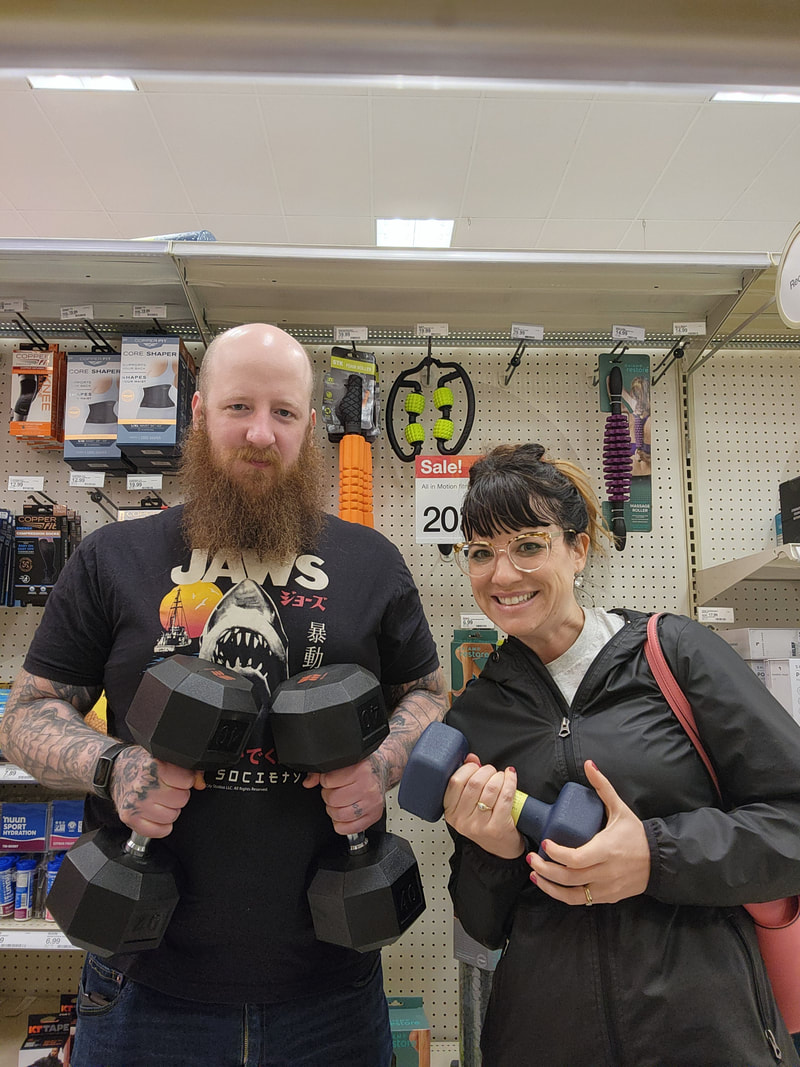

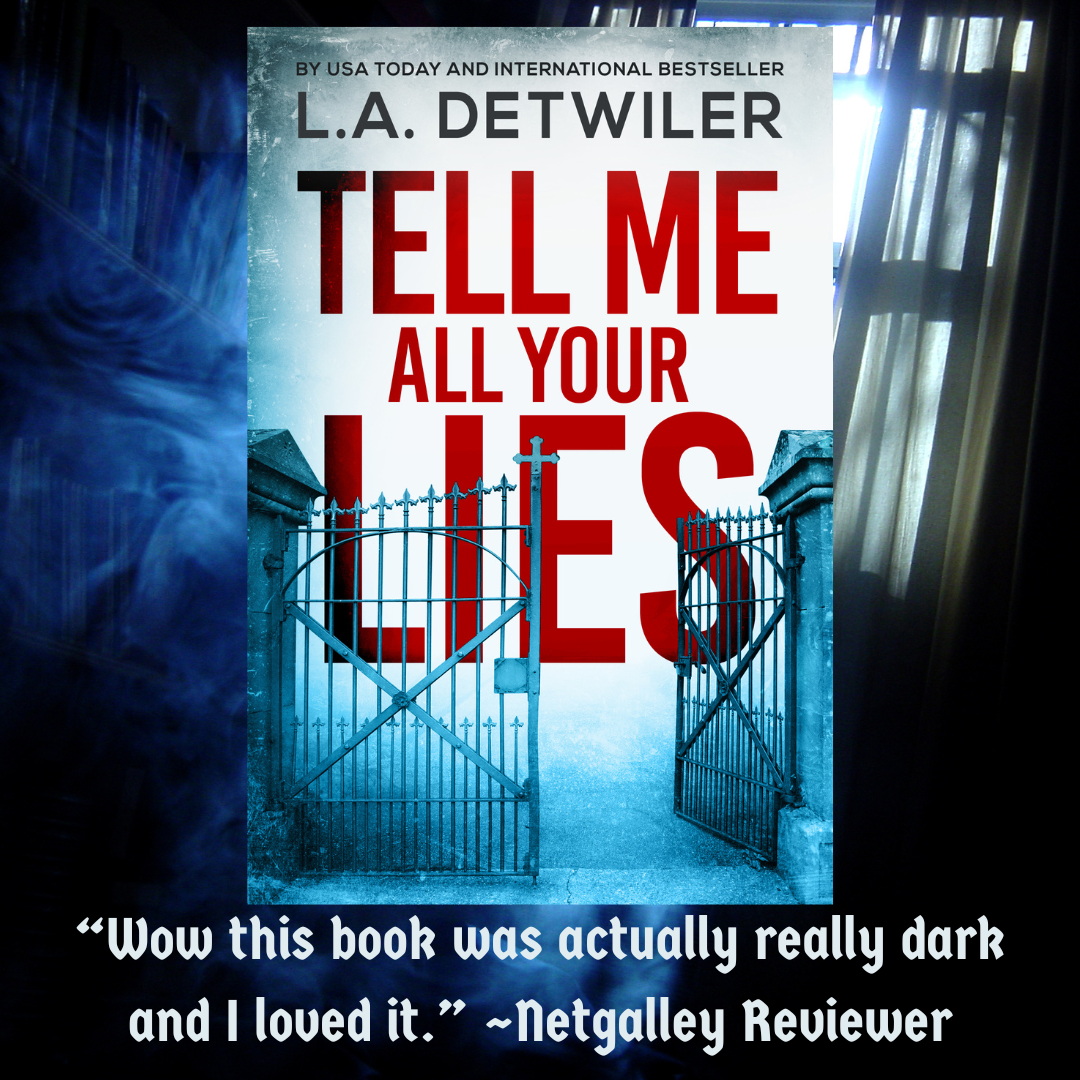
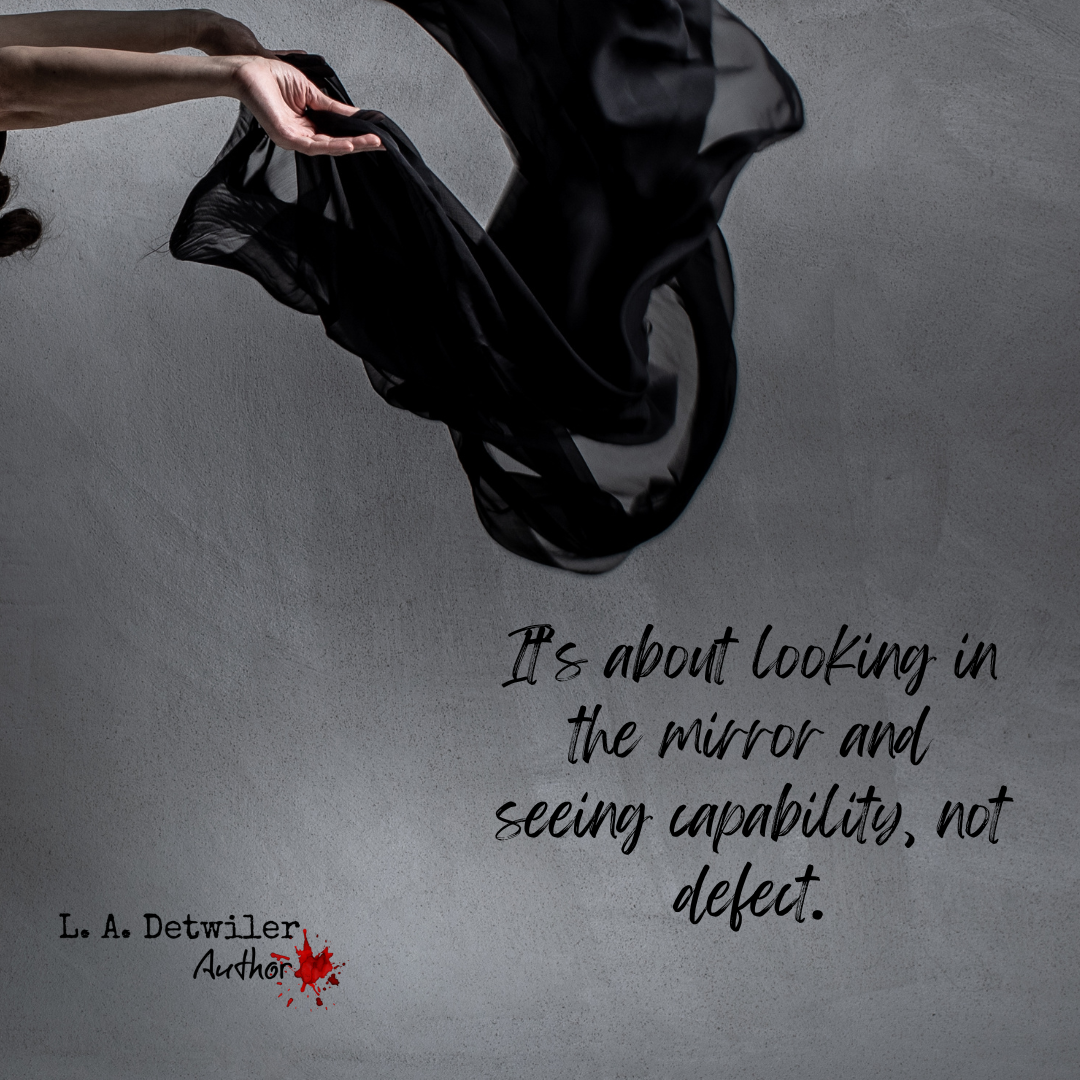
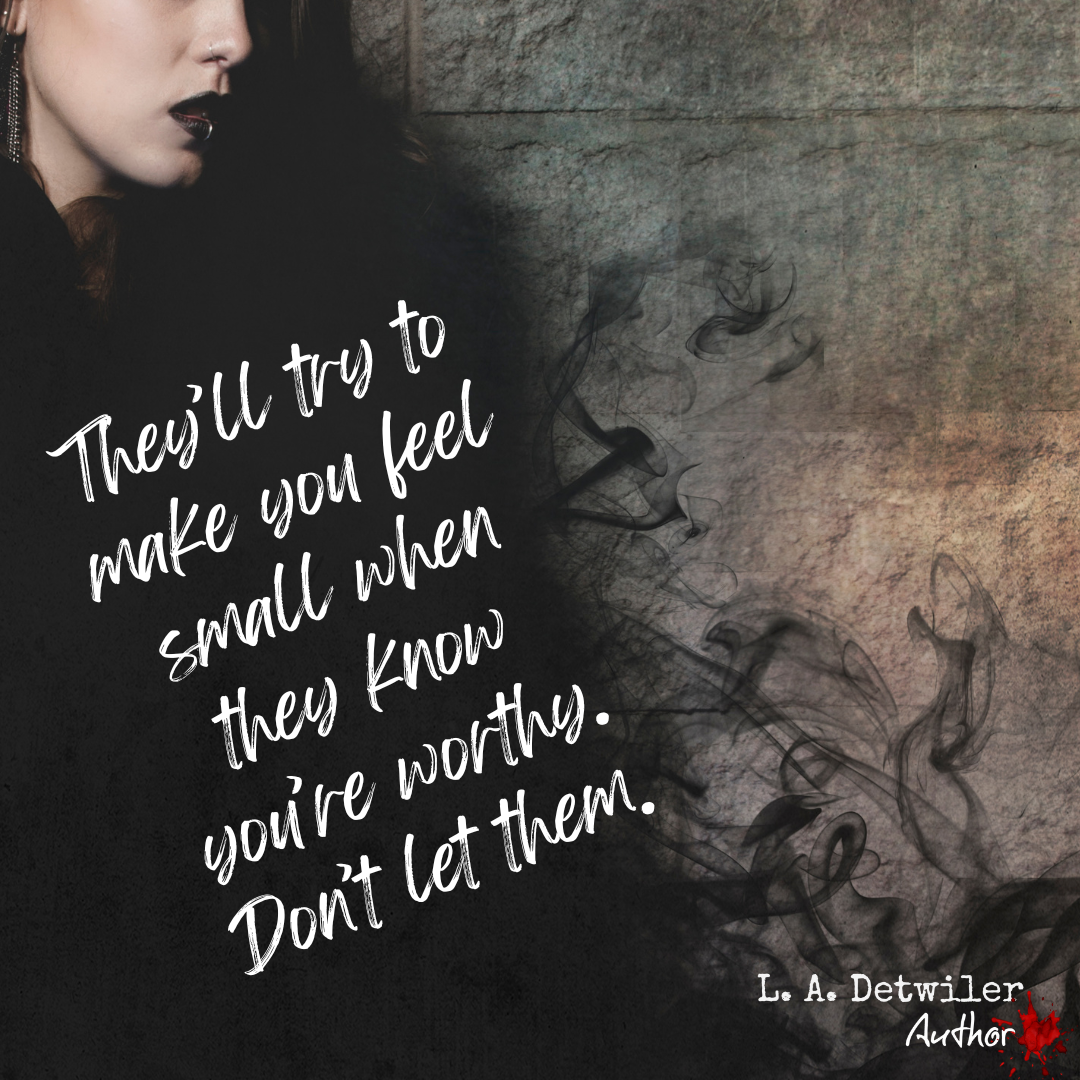
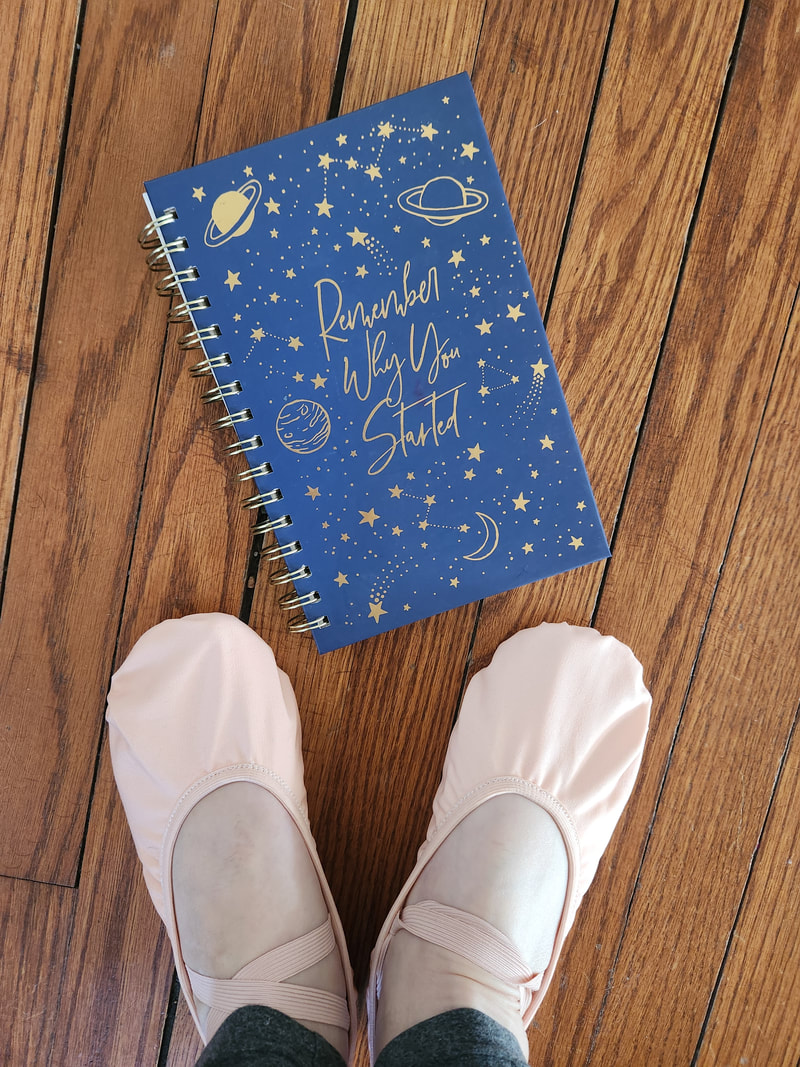
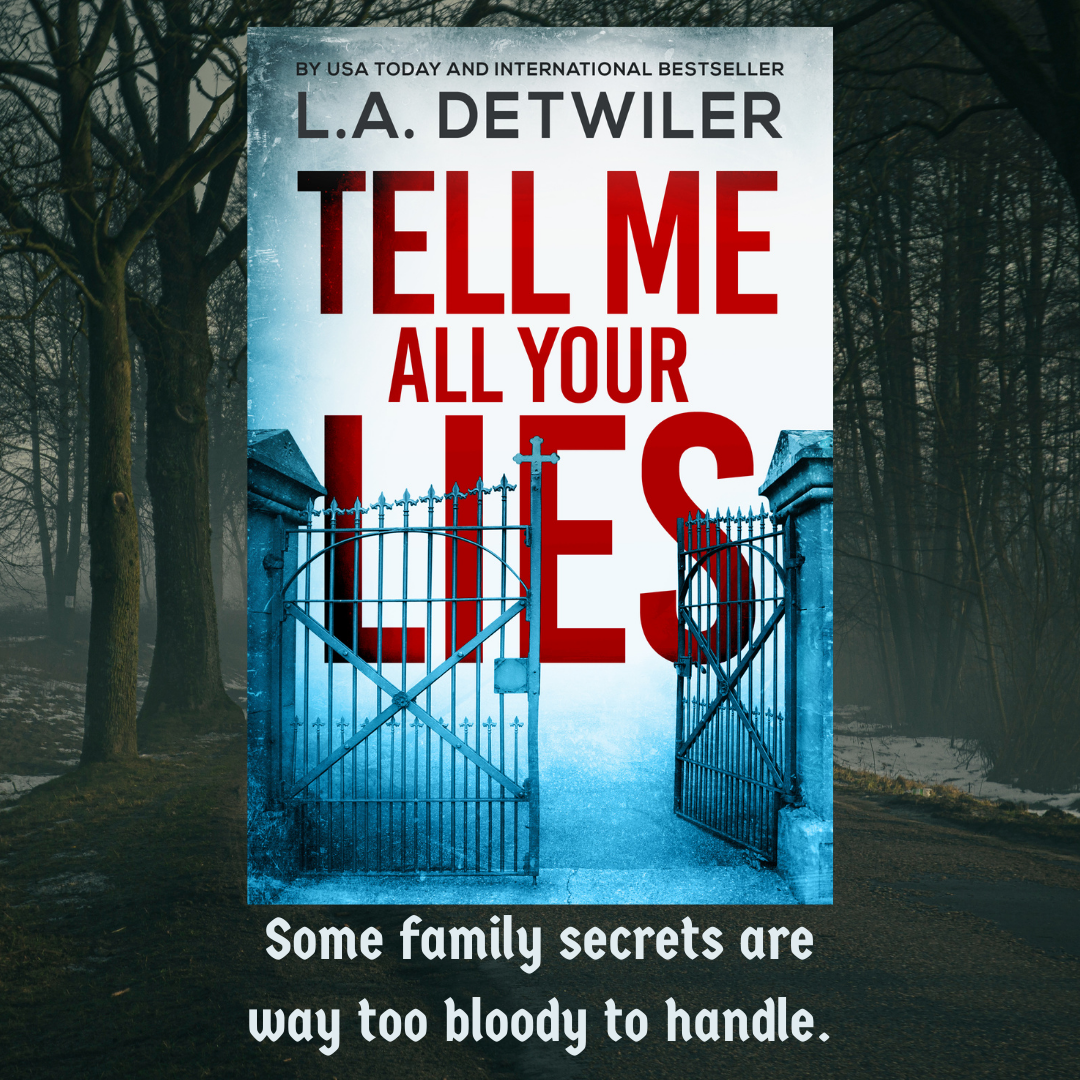
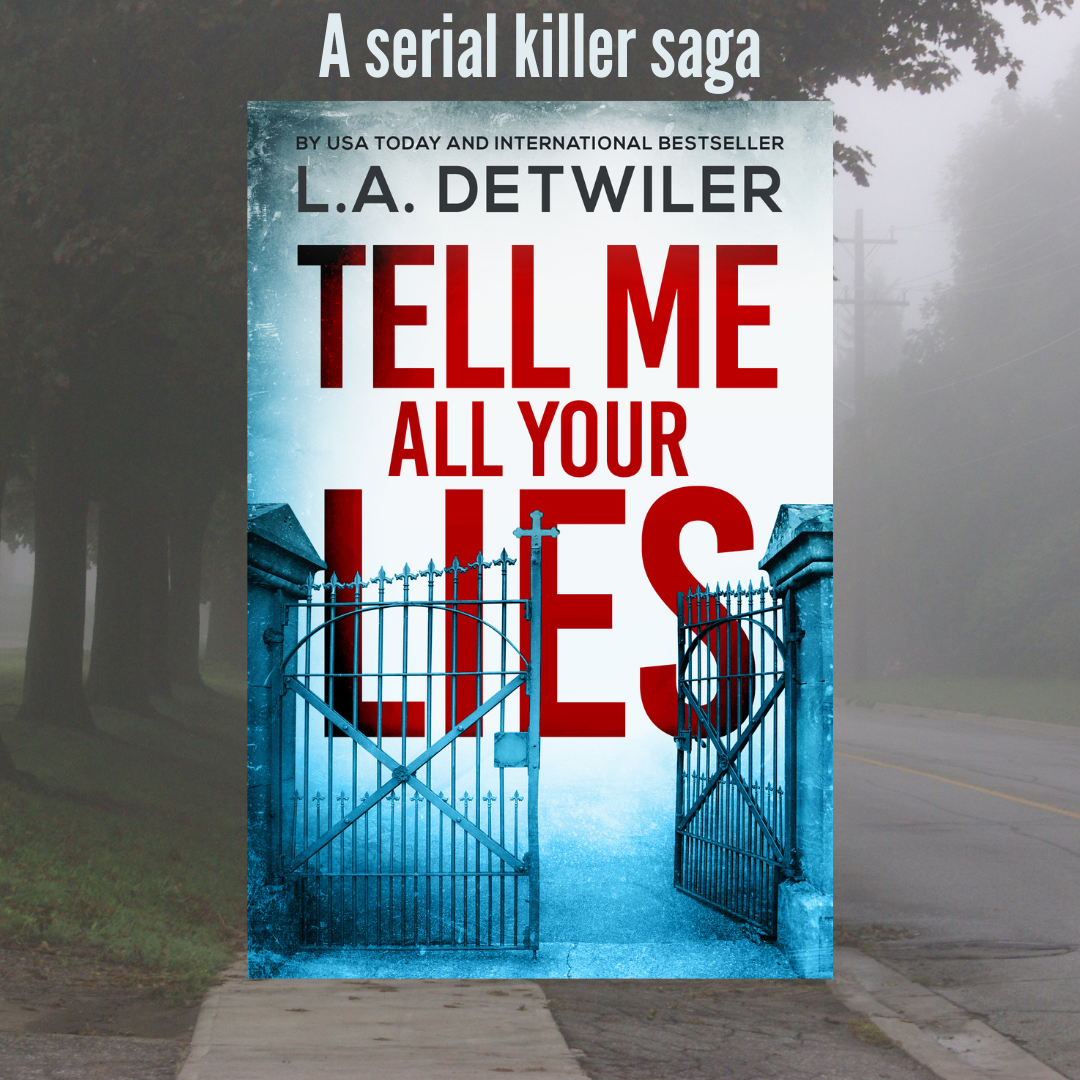
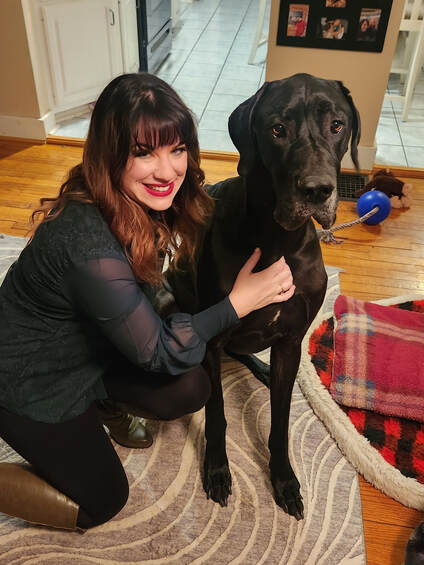




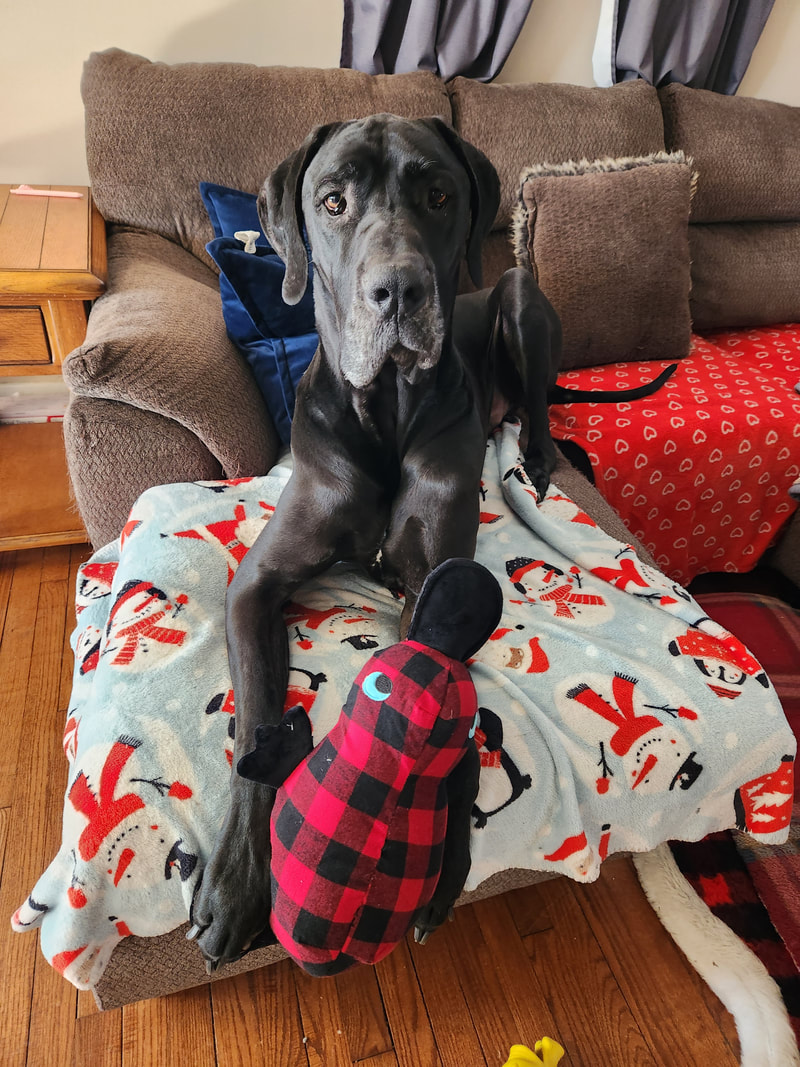
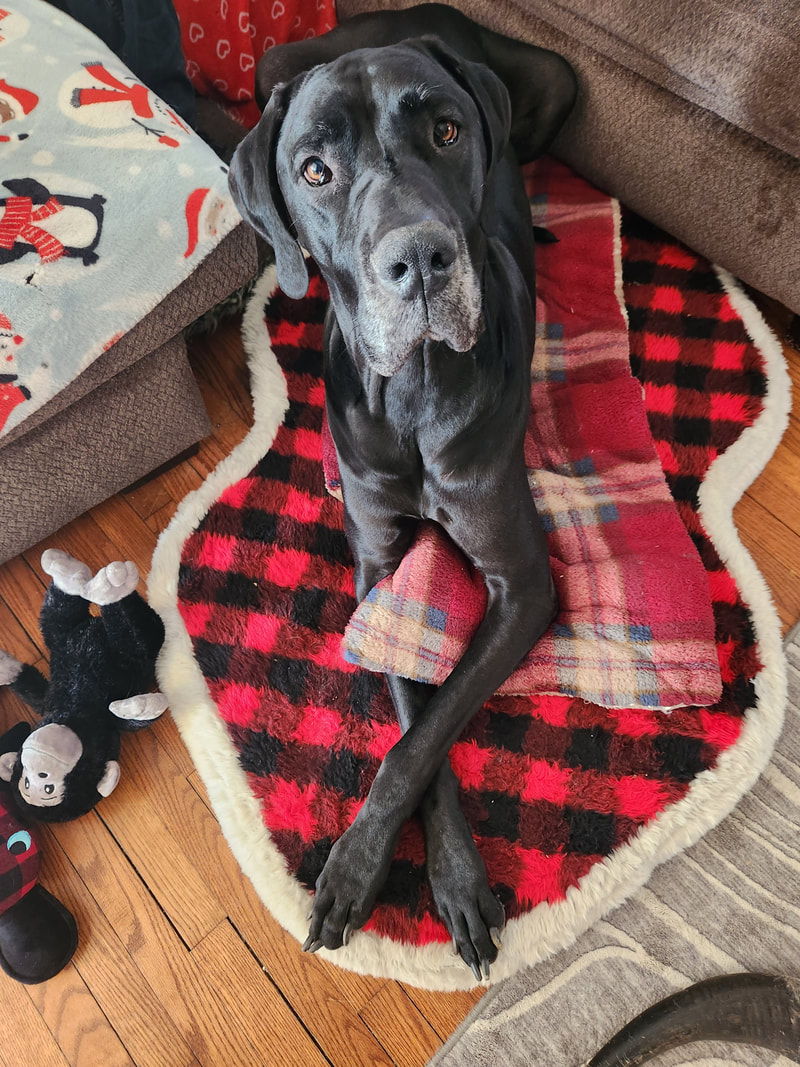
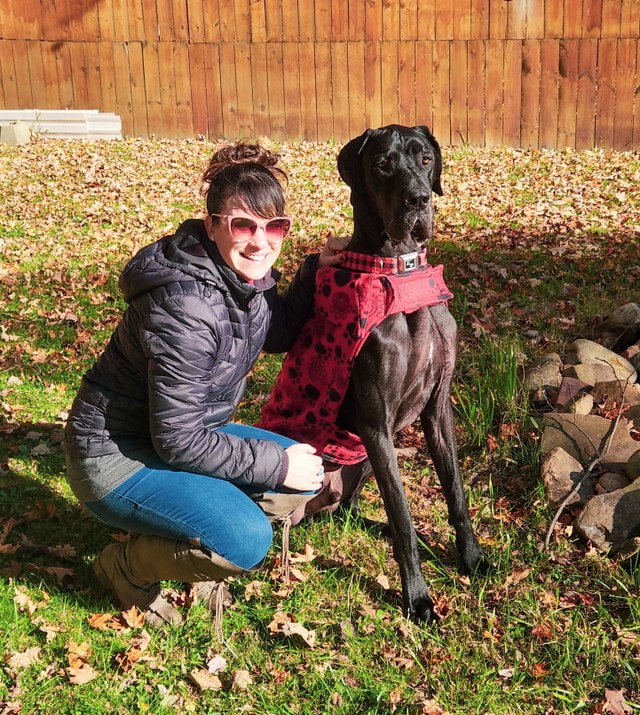
 RSS Feed
RSS Feed